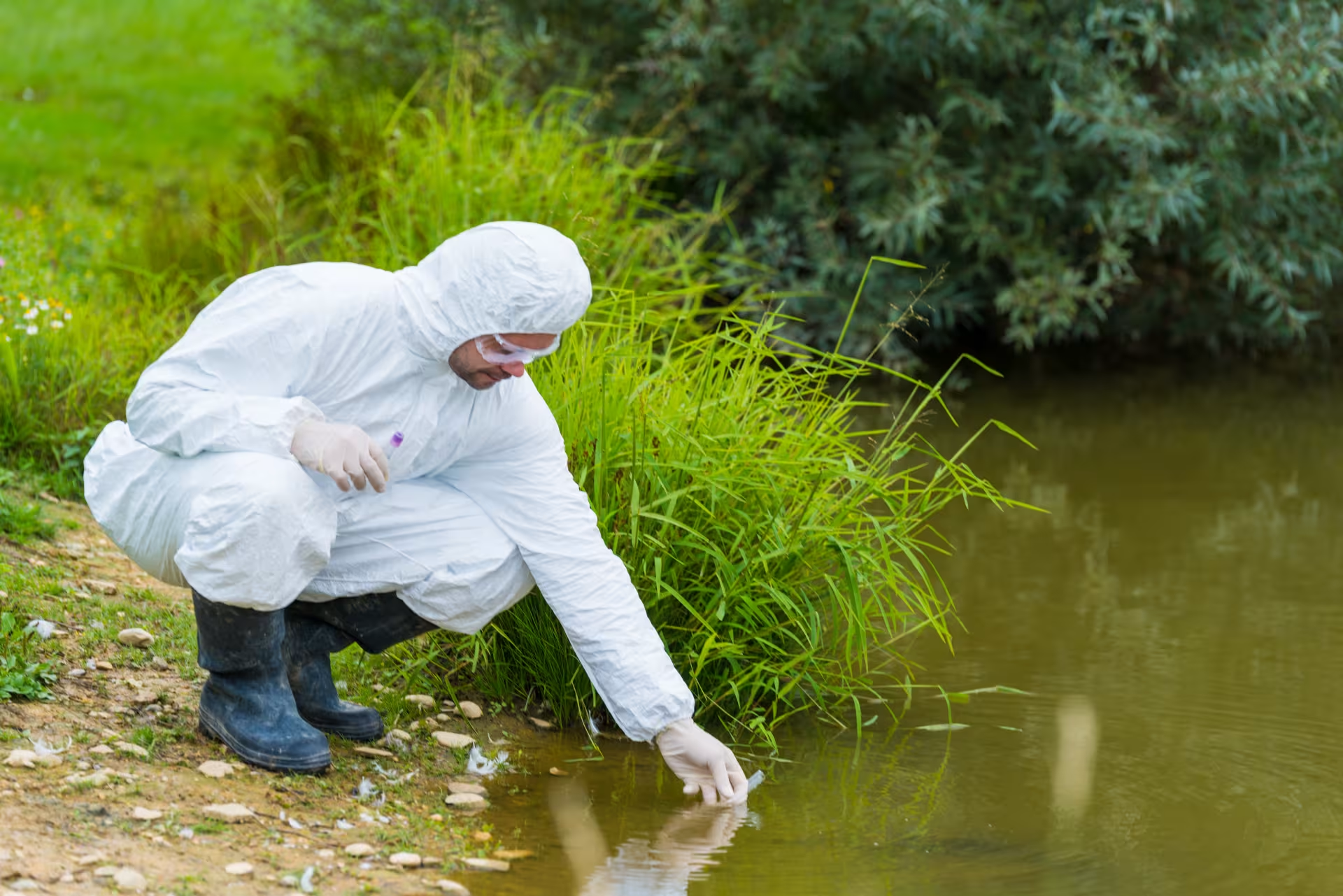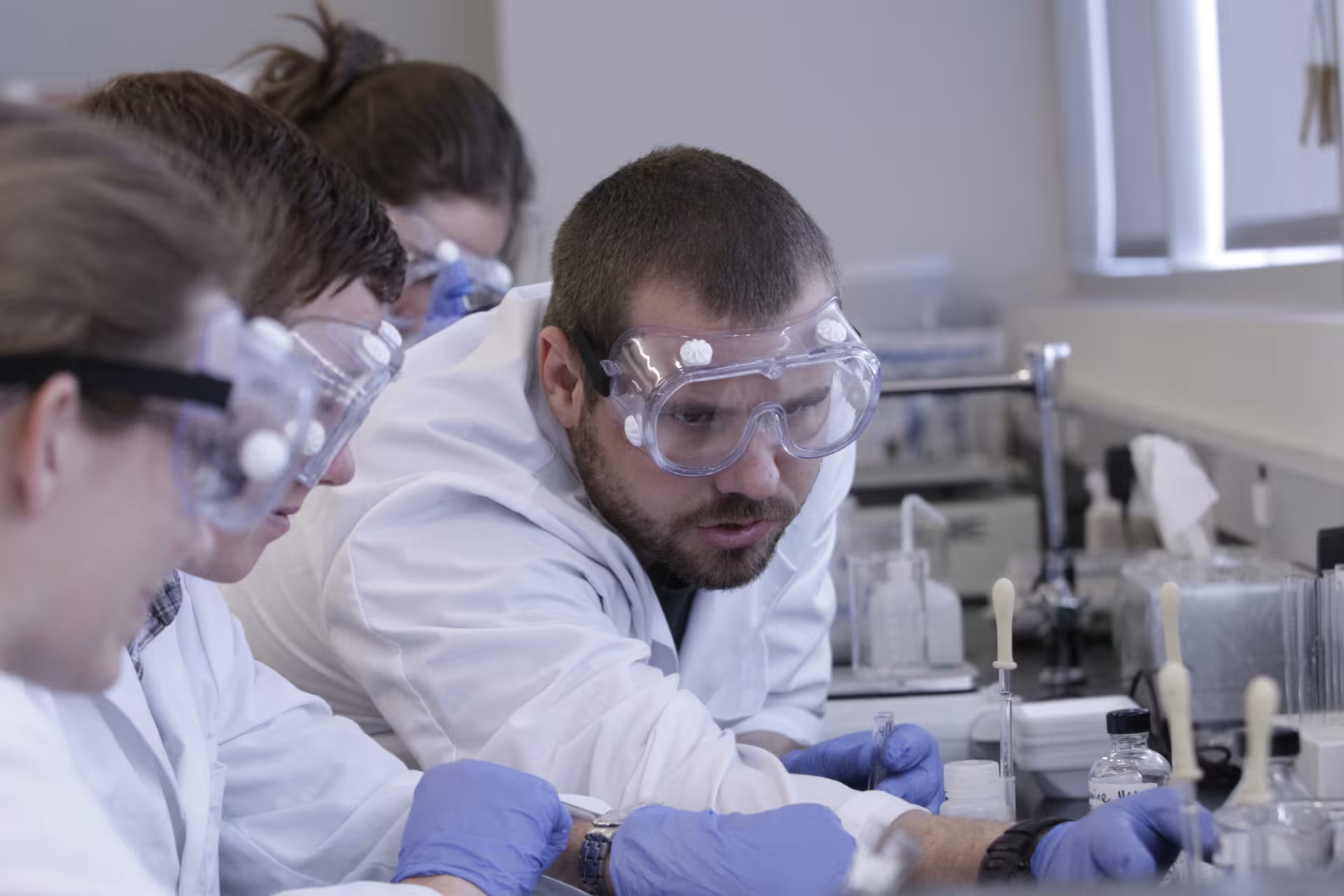
BS in Environmental Science: Environmental Chemistry Emphasis
Study Relationships Between Ecosystems, Animals and Human Health
Are you interested in how humans interact with nature? Do you find yourself wondering how earthquakes, volcanoes and other natural disasters affect the environment? Are you passionate about topics like air and water quality, toxic and hazardous substances, endangered species and wetlands, global climate change or issues pertaining to coastal management? Earning a Bachelor of Science in Environmental Science with an Emphasis in Environmental Chemistry at Grand Canyon University explores topics that may help you pursue a career that can potentially make a meaningful impact on the protection of ecosystems.

Campus: $8,250 per semester [More Info]
Up to 90 credits, only 84 can be lower division
Credits: Fill out the Lopes Eval to find out what will transfer
Admission Requirements (Bachelor's)
- 16+ years old
- High School Graduate
- 3.0+ Unweighted GPA
OR 2.5+ Unweighted GPA and
- ACT: 19
- SAT: 1000*
Admission requirements may differ based on degree level, program and modality, or transfer status. Some programs of study may require a higher GPA and/or other qualifying criteria for admission. Please review full admission and program requirements in the University Policy Handbook.
*Math and reading only on a 1600 point scale (test date after 3/1/2016). SAT score of 1380 required for 2400 point scale (test date before 3/1/2016).
Excel in Environmental Science: Focus on Environmental Chemistry
The field of environmental science and chemistry is an exploration into the movement of chemicals, including contaminants, through the environment and their effects on the health of animals, plants and humans, as well as the ecosystem as a whole.(See disclaimer 1) Environmental chemists play a significant role in assessing these environmental and health risks and often play a large part in developing remediation plans to better protect the environment.(See disclaimer 1)
Courses in this program focus on the importance of Earth in sustaining our daily lives. In this program, you will be taught how to engage with complex contemporary environmental issues. Some environmental chemistry examples include scientists investigating the impact of carbon emissions on air quality or how pharmaceuticals might contaminate groundwater.(See disclaimer 1) As a future professional in environmental science, these are questions you may investigate someday.

Unlocking the Advantages of GCU's On-Campus Experience
This program is designed for students who are interested in taking traditional on-campus daytime classes and labs in person. As an on-campus student at GCU, you can immerse yourself in a supportive learning community as you study environmental chemistry topics. Benefit from stimulating discussions with your peers and interact with knowledgeable instructors in GCU’s in-person environmental chemistry courses.
Environmental Science Degree

Take Environmental Science and Chemistry Courses
Pursuing the field of environmental chemistry teaches you to study the health of humanity, the planet we live on, and the animals with which we share it with. To prepare for this career, you will have the opportunity to examine essential environmental management practices and sustainability practices that can help solve ecological and human health protection issues, such as:(See disclaimer 1)
GCU builds these courses to study ethical ramifications of environmental science through the lens of the Christian worldview, guided by the principles of social and ecological responsibility and humanitarianism.
Skills Taught in This Bachelor’s in Environmental Science Program
Environmental chemistry is crucial for developing an understanding of how chemicals move through and affect ecosystems and human health.(See disclaimer 1) This program emphasizes critical scientific thinking, practical project experience, and the development of scientific acumen that can prepare you to potentially pursue jobs in the field.
The environmental science and chemistry coursework teaches specific program concepts and skills, such as:
In addition to scientific foundational skills, workplace skills such as effective communication, teamwork, work ethic and analytical skills are taught throughout this program. By developing these soft and hard skills, you may have the opportunity to pursue work within analysis and analytical lab environments, consult or perform environmental impact assessments, and explore pollution remediation options.
Career Outlook for Environmental Chemistry Graduates
Graduates may be able to set themselves up to pursue roles within government agencies, consulting, research institutions, or contributing to pollution analysis and mitigation. Opportunities in green technology development and academia may also be available in this field.
Some options of what you can do with the environmental science and chemistry experience taught in this program may include:

Institutionally Accredited Degrees
When thinking about your options for higher education, it’s important to ensure that you choose an accredited school. Institutional accreditation is a reflection of the quality of the college or university. GCU is proud to be institutionally accredited by the Higher Learning Commission, which means that credits and degrees earned at GCU are recognized by graduate schools, employers and professional organizations.
Frequently Asked Questions
Choosing a degree program can be a significant decision that may affect your future. It’s important to make an informed decision that aligns with your goals and interests. Use these frequently asked questions and answers to get started.
What is environmental chemistry?
How can chemistry help solve environmental problems?
What are common roles and responsibilities of an environmental chemist?
Is there hands-on research included in GCU’s environmental chemistry curriculum?
Do environmental chemists work more often within offices or outdoors?
Why choose GCU’s environmental chemistry courses?
Are there any scholarships available related to the environmental science and chemistry classes?
Program Curriculum
General Education Requirements
Core Courses

Envision creating a lasting impact on the world as you contribute to potentially enhancing the health of our planet for generations to come. Contact a university counselor or apply for GCU’s BS in Environmental Science with an Emphasis in Environmental Chemistry today!
- EnvironmentalScience.org. (n.d.). What is an Environmental Chemist? Retrieved Sept. 20, 2023.
- U.S. Bureau of Labor Statistics. (2023, Sept 6). Environmental Scientists and Specialists: Work Environment. Occupational Outlook Handbook. Retrieved Sept. 20, 2023.
- FastWeb. (n.d.). Environmental Chemistry. Retrieved on Sept. 20, 2023.


